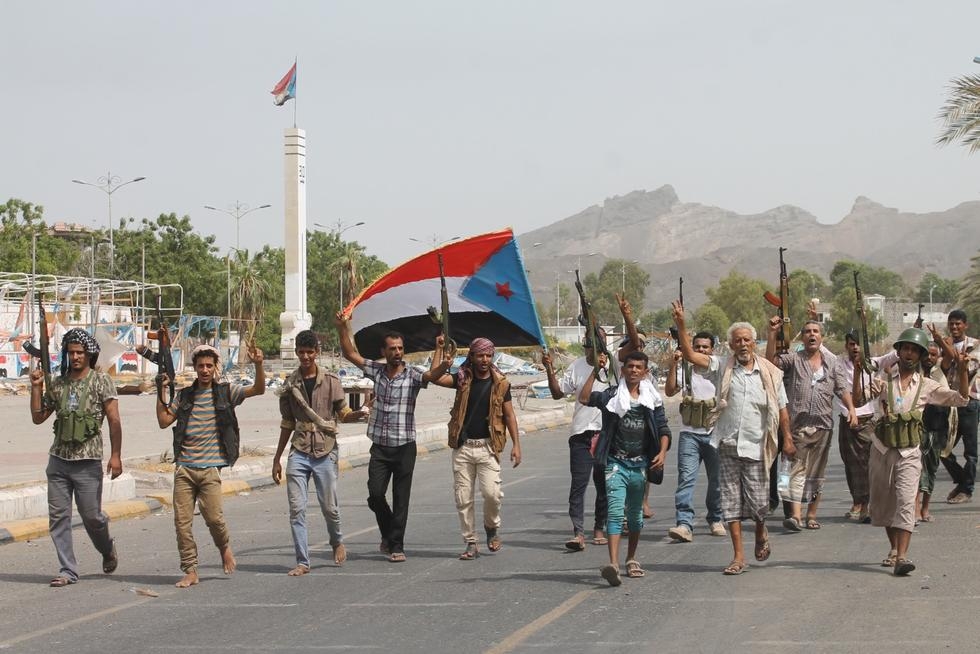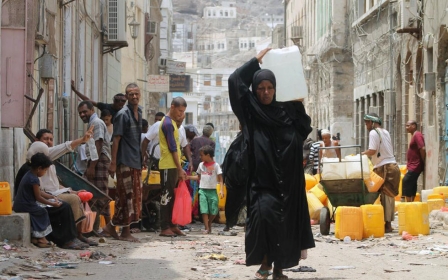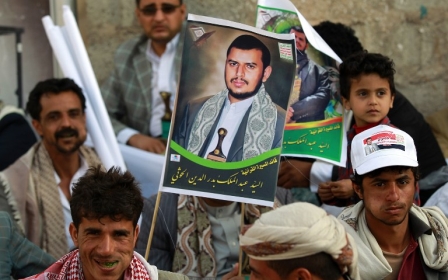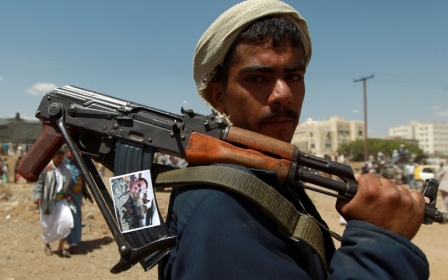ANALYSIS: After liberation of Aden, will Yemen's south secede?

After the liberation of Yemen's southern port city of Aden from the grip of the Houthi militia, backed by reengaged forces loyal to former President Ali Abdullah Saleh, the question of secession by the country's south has resurfaced.
Yemeni unity was announced on 22 May 1990 and it has faced many challenges, most notably the outbreak of a war during the summer of 1994, which ended with the victory of the supporters of unity.
However, this victory was followed by what southerners perceived to be repressive and exclusionary practices by leaders of the north, leading many in the south to call for secession.
Such calls have become louder since the Houthi militiamen, who overthrew the government of President Abd Rabbuh Mansour Hadi in Sanaa, turned south to chase his loyalists, killing dozens in the process.
Responding to calls for aid from Hadi, who is now exiled in Riyadh, Saudi Arabia led a military coalition on 26 March to push back the Houthi militia advances.
But the Saudi-led airstrikes have only recently yield gains on the ground, predominately in Aden, where some members of the exiled Yemeni government have returned.
Supporters of the Houthi militia and Saleh have claimed that the southerners are only fighting for secession, a charge dismissed by the Yemeni government.
In fact, Saleh went further by alleging that Saudi Arabia supports the secession of Yemen's south from the rest of the country.
"The Saudis are mistaken when they think that a unified Yemen is a threat to them," Saleh said in an interview with media outlet almotamar.net.
"In 1994, Saudi Arabia had tried to back [the south's] secession but it failed and lost," Saleh added in the same interview.
'Iran wants to divide the region'
Saleh's accusations, however, were dismissed by some observers, who said that Riyadh's rival, Tehran, would stand to benefit from the country's division.
"Iran wants to divide the region into small entities easily swallowed. Yemen will not be the last but just the start," political analyst Kamal al-Baadani, told Middle East Eye, adding that secession will make the north firmly under Iran's control.
"Some of the voices that rose after the liberation of Aden demanding secession are known to be not far from Tehran," said Baadani, without further elaborating.
Baadani, however, sees in Yemen's national unity "an ideological link between north and south" which most people from both sides still want.
Baadani's views are not uncommon among Yemenis, particularly critics of the Houthi militia and Saleh.
"The southerners are not ready for secession, despite the existence of different trends in the Southern Movement which are against unity," a Yemeni government official told MEE, on condition of anonymity.
"There is a trend [for secession] supported by Iran, some tribal forces in the north, and even the deposed president Saleh," the official added.
But the push for the country's break-up has not reached a serious level, according to Yemeni journalist Jamil Tarbush, who is now based in Saudi Arabia.
"The victory of Aden is not a threat; it is a hope for us as southerners," Tarbush told MEE, adding that people "are united" against the Houthi militia and forces loyal to Saleh but do not necessarily want secession if their lives are not under threat.
'Suffering will bring everyone together'
Tarbush said "the current generation cannot forget the crimes committed against them" by the Houthi-Saleh alliance, but if things change for the better on the ground then it will give people more hope for the future in a new free Yemen.
"The bloodshed, destruction, displacement and suffering will bring everyone to the heart of one man," said Tarbush, suggesting that southern and northern victims are likely to come closer together after the Houthi-Saleh alliance onslaught against many parts of Yemen.
"The failure of some of the old leaders [like Saleh], who are dependent on the Persian project, does not mean that Yemen cannot build a strong and secure country that achieves security and stability for the whole region," added Tarbush.
Some southern leaders took to social media to warn their followers against confusing the Houthi-Saleh military alliance with the whole of the north and its people, which they view as oppressed too.
"Let our differences be only with those oppressors who are in control of the north," southern leader Salah Bates was quoted as saying, urging southerners to be fair and not direct their anger towards northerners as a whole.
(Mamoon Alabbasi contributed to the writing of this article)
New MEE newsletter: Jerusalem Dispatch
Sign up to get the latest insights and analysis on Israel-Palestine, alongside Turkey Unpacked and other MEE newsletters
Middle East Eye delivers independent and unrivalled coverage and analysis of the Middle East, North Africa and beyond. To learn more about republishing this content and the associated fees, please fill out this form. More about MEE can be found here.




